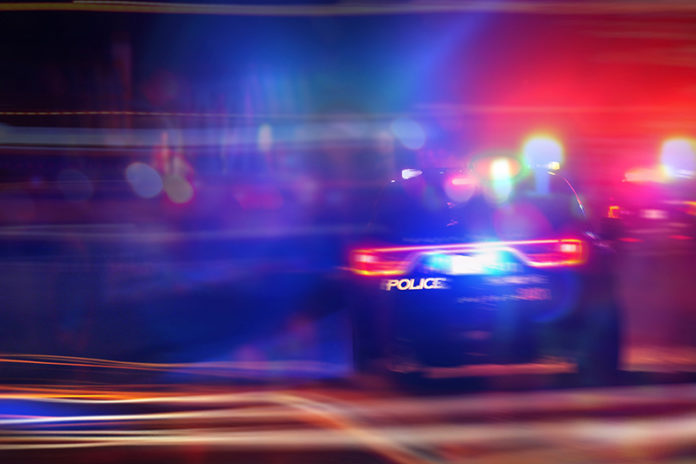For decades conservatives and law enforcement considered each other cultural allies, united in a common appreciation – and respect – for law and order. Today, this relationship is being strained, in some instances to the breaking point, and, as I discuss in a recent white paper published at The Heritage Foundation, the modern era of gun control is much to blame.
That gun control serves as a flashpoint for this rift should not surprise. As reflected in laws and regulatory mandates, gun control requires enforcement, which is a responsibility that by and large falls to the police. By enacting increasingly intrusive gun control measures, liberal politicians are forcing police to take actions that put them at odds, if not on a collision course, with gun owners. This might manifest itself in the enforcement of “extreme risk protection orders” (ERPOs) also known as “Red Flag Laws,” or rounding up newly banned sporting rifles — an increasingly likely possibility if Republicans fail to take seriously signals by many Democrat leaders to do just that.
Results of these pressure points have been a mix of encouragement, and disappointment.
When Virginia Democrats gained total control of the Commonwealth following the 2019 elections, one of their first major acts was introducing sweeping gun control bills in the General Assembly. Extreme as they enacted measures were, ranging from monthly purchase limits to universal background checks, they were less far-reaching than what was initially planned. This was due largely to the backlash from not just citizens, but from county sheriffs as well, who promised to turn their counties into “gun sanctuaries” by refusing to enforce laws that ran afoul of the Second Amendment.
For gun rights, this was a huge win. It demonstrated that when the “law” in “law and order” directly contradicts the most supreme law of the land — the United States Constitution — many local sheriffs could still be reliable allies in protecting gun rights; or, at least, those law enforcement officials occupying positions answerable to citizens, not the bureaucracy (as are most police chiefs). This distinction makes all the difference.
While rural sheriffs have stood bravely on the front line defending the Second Amendment, law enforcement leaders in major cities largely have been comfortably on the other side of the battle. Take, for instance, Houston Police Chief Art Acevedo, who argued for increased “red flag law” powers by questioning whether city officials stood with the gun lobby “or the children that are getting gunned down in this country every single day?” Then there is Scott Israel, the former Sheriff of Broward County in Florida, who was in charge during the 2018 mass shooting at Marjory Stoneman Douglas High School in Parkland. Israel has been repeating the time-worn gun-control myth, that more armed citizens would “make the job of law enforcement far more difficult and divert them from the real threat.”
These clearly are not the allies in law enforcement that conservatives want or need. They do, however, reflect a troubling philosophical shift among many law enforcement officials siding not with law-abiding citizens in the exercise of the right to keep and bear arms, but with left-wing politicians pinning their hopes (and taxpayer dollars) on ever-increasing government control over that fundamental right.
The comments from Acevedo and Israel capture perfectly the complicated dynamic between Second Amendment conservatives and law enforcement.
Whereas the Second Amendment reflects an individual’s natural right to self-defense, police see this as their responsibility, and their responsibility alone. They remain protective of this duty, often to the detriment of Second Amendment rights. In fact, as Acevedo’s hyperbolic blustering suggests, they see guns in the hands of law-abiding citizens as fundamentally dangerous.
This attitude comes with consequence. First, law enforcement leaders are increasingly moving from silently serving in the background of policy debates, into using a very public bully pulpit from which to push greater gun control measures. And, in states that require permit approvals from police officials, some have even abused their role in this process to chill gun rights, simply by “slow-walking” the process.
Secondly, this attitude has resulted in increasingly contentious situations between armed citizens and police, which unfortunately has resulted in unnecessary injury and occasionally death. The real tragedy here is that in American society where the Second Amendment is afforded the due respect its history and fundamental meaning deserve, such confrontations should never occur. More on this to come.































